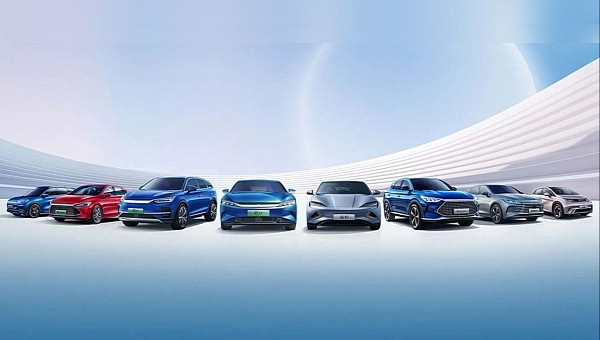There are rumors that Tesla will reduce its prices in China for a third time after lowering them twice did not help it sell more in the largest car market in the world. The two first reductions would already sound strange in times of higher costs for all industries. To make matters worse, BYD said it would go in the opposite direction and raise prices on January 1, 2023.
BYD’s excuse was precisely the rising cost of necessary raw materials and also that China would kill new energy vehicle (NEV) subsidies. In previous years, the Chinese government also said it would end these incentives, but it kept them going for a bit more time. Although that may also be the case in 2023, CNEVPost said the expiration is imminent.
The Chinese automaker announced on Weibo that prices would be RMB2,000 ($279 at the current exchange rate) to RMB6,000 ($834) higher across the Dynasty and Ocean series and also for Denza vehicles. A while ago, we thought BYD would turn its joint venture with Mercedes-Benz into its luxury division, but BYD already said it would be called Yangwang in China. Its international name – if it is also meant for global markets – has not been disclosed so far.
Considering the Chinese government offers RMB4,800 ($670) for plug-in hybrids and RMB12,600 ($1,760) for battery electric vehicles (BEVs), BYD’s vehicles can get up to RMB18,600 ($2,598) more expensive. That discount only applies to NEVs below RMB300,000 ($41,897), which is one of the reasons for Tesla to have reduced its prices: to make the Model Y eligible.
If BYD were willing to have more customers, it would probably reduce prices to compensate for the lack of NEV subsidies. Demand does not seem to be a concern for the Chinese automaker, which is presenting several new vehicles over the e-platform 3.0. The latest one was the Seal, reputed as one of the main competitors to the Tesla Model 3.
The Chinese automaker announced on Weibo that prices would be RMB2,000 ($279 at the current exchange rate) to RMB6,000 ($834) higher across the Dynasty and Ocean series and also for Denza vehicles. A while ago, we thought BYD would turn its joint venture with Mercedes-Benz into its luxury division, but BYD already said it would be called Yangwang in China. Its international name – if it is also meant for global markets – has not been disclosed so far.
Considering the Chinese government offers RMB4,800 ($670) for plug-in hybrids and RMB12,600 ($1,760) for battery electric vehicles (BEVs), BYD’s vehicles can get up to RMB18,600 ($2,598) more expensive. That discount only applies to NEVs below RMB300,000 ($41,897), which is one of the reasons for Tesla to have reduced its prices: to make the Model Y eligible.
If BYD were willing to have more customers, it would probably reduce prices to compensate for the lack of NEV subsidies. Demand does not seem to be a concern for the Chinese automaker, which is presenting several new vehicles over the e-platform 3.0. The latest one was the Seal, reputed as one of the main competitors to the Tesla Model 3.













